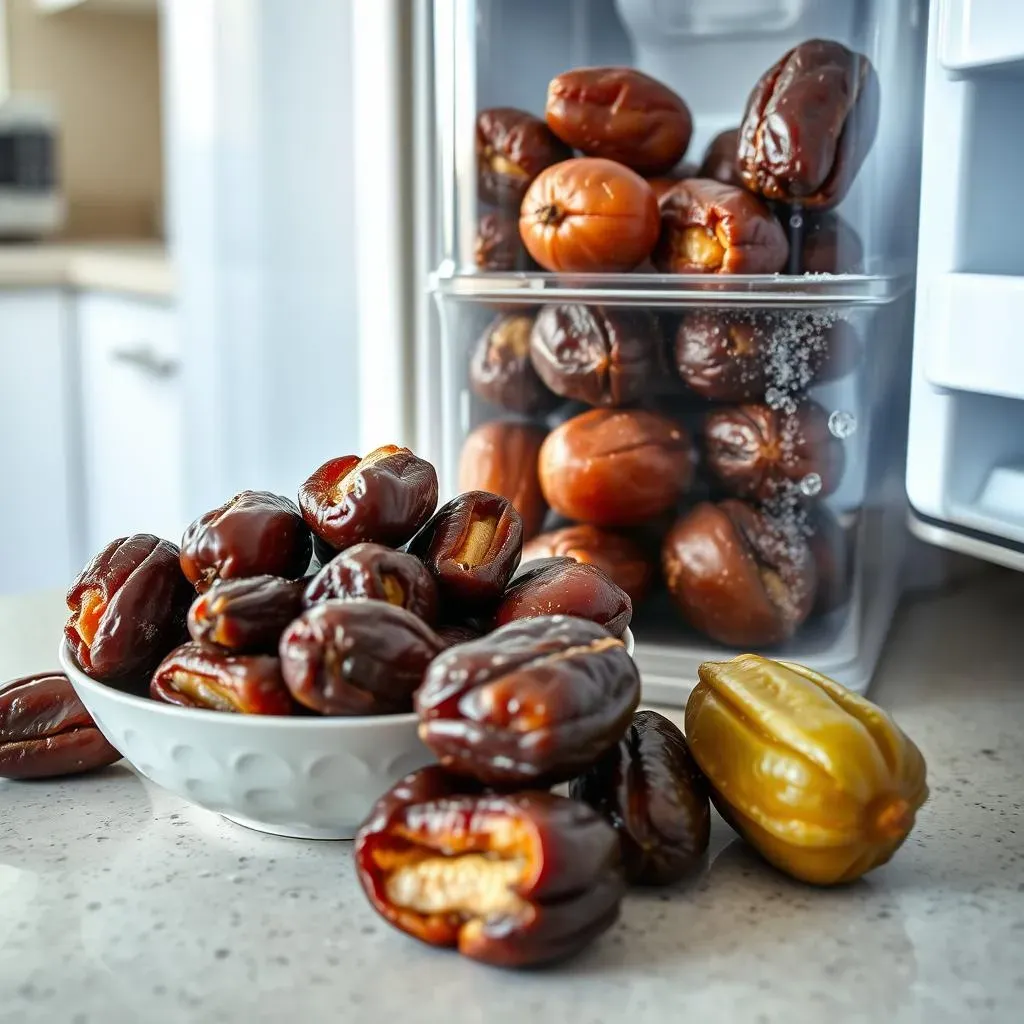Table of Contents
Ever bought a batch of sweet, chewy dates and wondered where they belong? Should they sit on your counter, nestled in the fruit bowl? Or do they need a chilly retreat in the refrigerator? It's a question many of us ponder, and getting it right can be the difference between enjoying a perfectly preserved snack and finding a sticky, sugary mess. This article will clear up the confusion around storing these delectable treats. We'll explore whether you **should dates be refrigerated** and what happens if you don't. We'll weigh the pros and cons of keeping dates at room temperature versus chilling them in the fridge, and even touch on the option of freezing them for the long haul. So, if you're looking to keep your dates fresh and delicious for as long as possible, stick around. We've got the answers you're looking for.
Should Dates Be Refrigerated? Let's Find Out
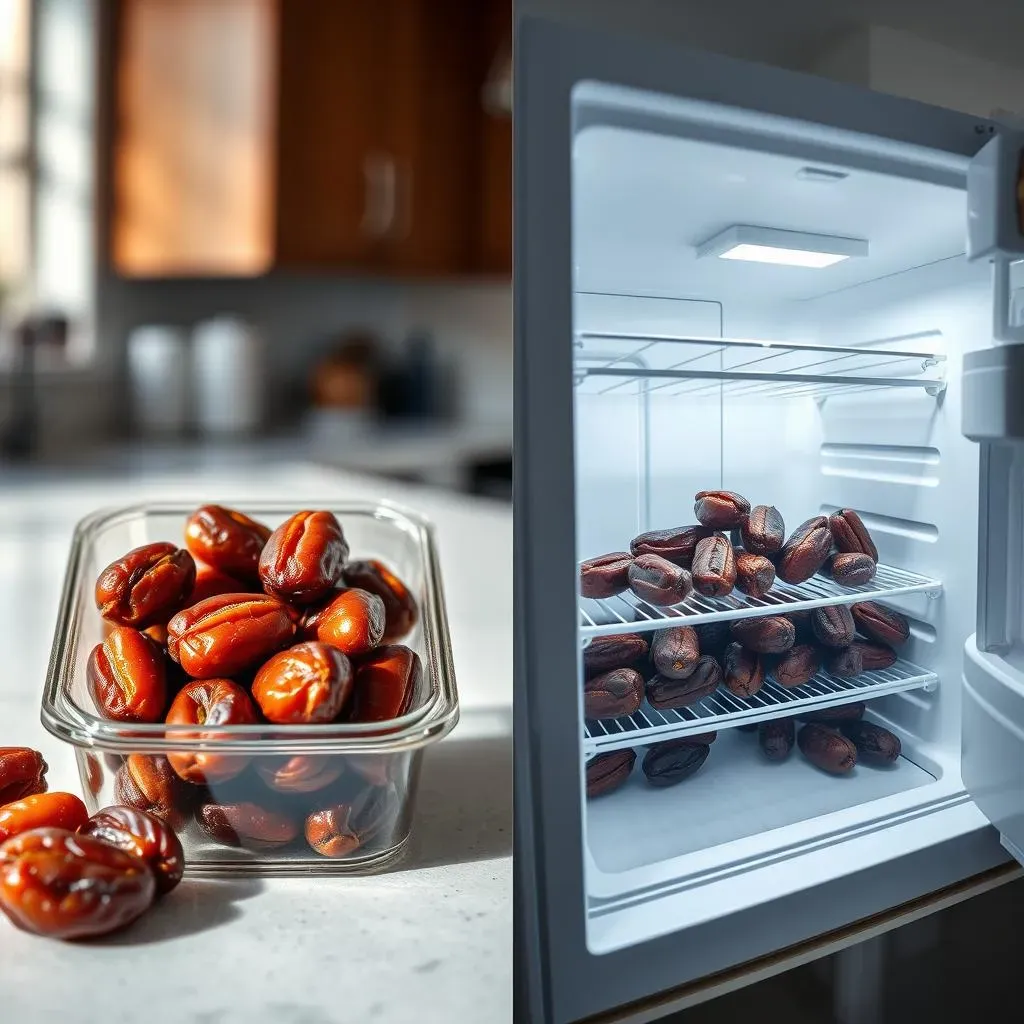
Should Dates Be Refrigerated? Let's Find Out
The Great Date Debate
So, you've got dates. Good choice! They're like nature's candy, but way less guilt. Now comes the big question: where do these sticky little guys live? Do they get a spot next to the milk and cheese, or are they cool hanging out on the counter with the bananas? It's a common head-scratcher, and honestly, there's no single right answer that fits every situation. Think of it like this: dates are pretty chill, but sometimes they appreciate a little extra TLC to stay their best.
Room Temperature: The Casual Approach
Leaving dates at room temperature is totally fine if you plan on eating them relatively soon. Think within a week or so. They won't suddenly sprout legs and run away, or anything dramatic like that. In fact, some people prefer the softer, slightly stickier texture you get when dates are kept at room temperature. It's all about personal preference, really. Imagine biting into a warm, gooey caramel – that's kind of the vibe you get with room-temp dates. Just make sure they're in an airtight container to keep any unwanted critters or dryness at bay.
Chilling Out: When the Fridge is Your Friend
But what if you bought a Costco-sized container of dates (we've all been there) and know you won't devour them in a flash? That's when the refrigerator becomes your best friend. Cooler temperatures dramatically slow down the natural sugars from crystallizing and help maintain the dates' moisture. Nobody likes a rock-hard, sugary date. It's like trying to chew on a tiny piece of sandpaper. Plus, the fridge helps prevent any potential molding, especially if you live in a warmer, more humid climate. Think of it as a spa day for your dates, keeping them plump and happy for longer.
Storage Method | Pros | Cons |
|---|---|---|
Room Temperature | Softer texture, readily accessible | Shorter shelf life, potential for sugar crystallization |
Refrigerator | Longer shelf life, prevents sugar crystallization and mold | Can become slightly firm |
Room Temperature vs. Refrigerator: Where Should Dates Live?
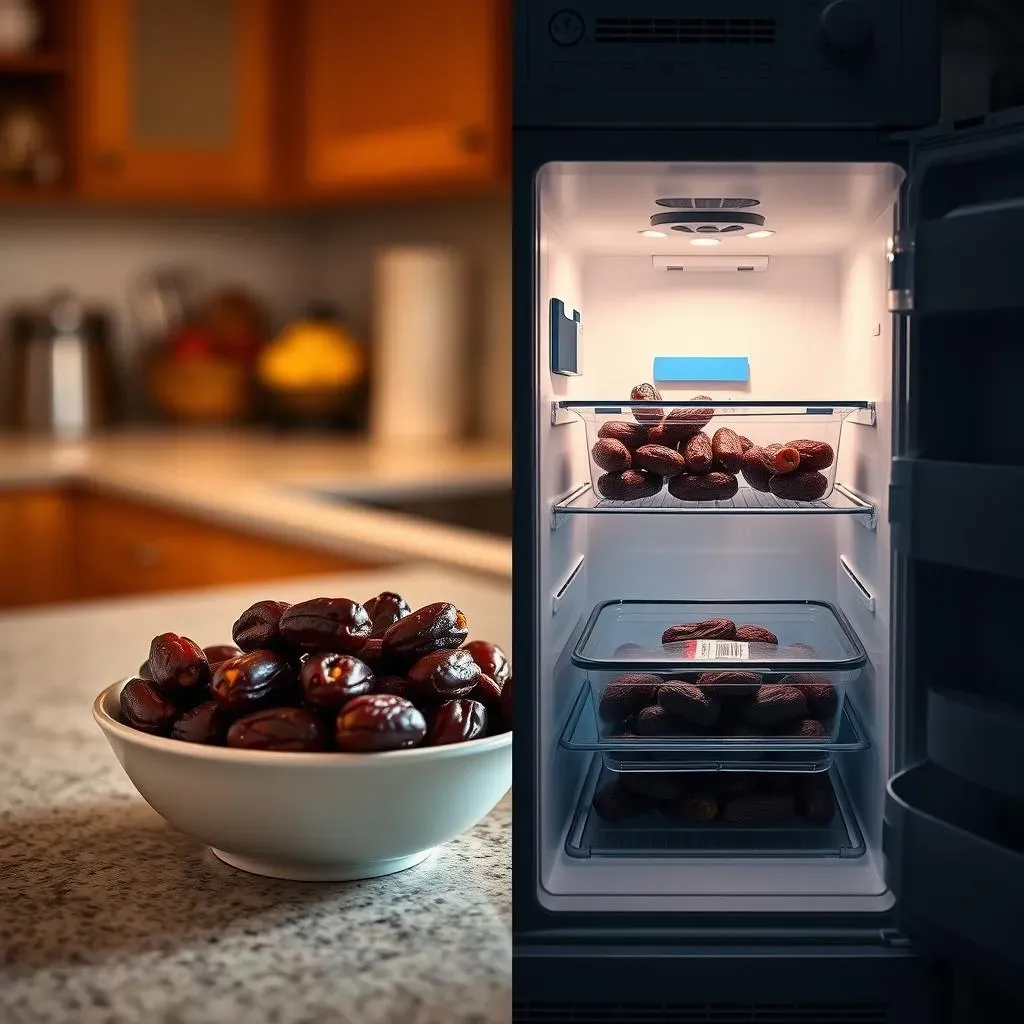
Room Temperature vs. Refrigerator: Where Should Dates Live?
Alright, so we've established the basics. But how do you actually decide whether your dates get the countertop treatment or a prime spot in the fridge? Think about your date consumption habits. Are you a date fiend, polishing off a handful every day? Countertop it is, my friend. They'll be gone before they even think about getting sugary. But if you're more of an occasional date nibbler, or you just bought a bulk load because they were on sale (who can resist a good deal?), the fridge is your go-to. It's like choosing between wearing your favorite t-shirt this week or storing it carefully for next season. One's for immediate enjoyment, the other's for lasting freshness.
Why Refrigerate Dates? Keeping Them Fresh Longer
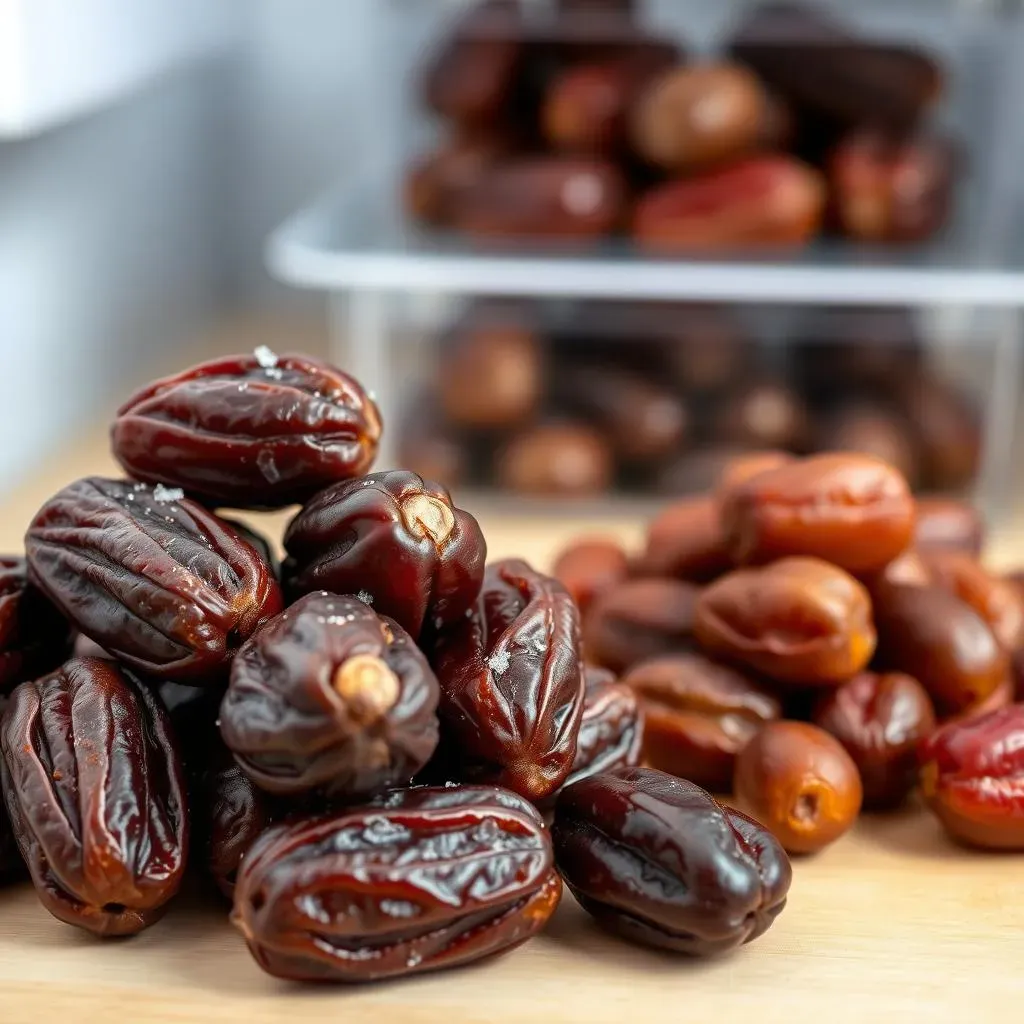
Why Refrigerate Dates? Keeping Them Fresh Longer
The Science of Staying Fresh
Okay, so why exactly does the fridge work its magic on dates? It's all about slowing things down. Think of your refrigerator as a pause button for the natural processes that can make food go bad. Dates, while relatively stable, still contain sugars and moisture. At room temperature, these sugars can start to crystallize, leading to that grainy texture nobody enjoys. Plus, warmth can encourage the growth of mold, especially if your dates are on the softer side. Popping them in the fridge puts a damper on these processes, extending their delicious lifespan. It's like hitting the brakes on the aging process for your sweet treats.
Combating the Sugar Monster
Let's talk more about that sugar crystallization. It's not harmful, but it's definitely not pleasant. You know those little white specks that sometimes appear on the surface of dates left out too long? That's sugar making a break for it. It's the date's way of saying, "Hey, it's getting a bit too warm in here!" Refrigeration significantly reduces the likelihood of this happening. The cold temperature keeps those sugar molecules more stable and less likely to clump together and form those gritty bits. Think of it as keeping the peace in the sugar kingdom within your date.
Moisture Control is Key
Another big reason to refrigerate dates is moisture control. Too much moisture, and you risk mold. Too little, and they become hard and dry. The fridge provides a more controlled environment, helping to maintain the ideal moisture level within the dates. This is especially important if you live in a humid area. Think of the refrigerator as a dehumidifier for your dates, ensuring they stay perfectly chewy and don't turn into little bricks. It's about creating that Goldilocks zone – not too wet, not too dry, just right for date perfection.
Beyond the Fridge: Can You Freeze Dates?
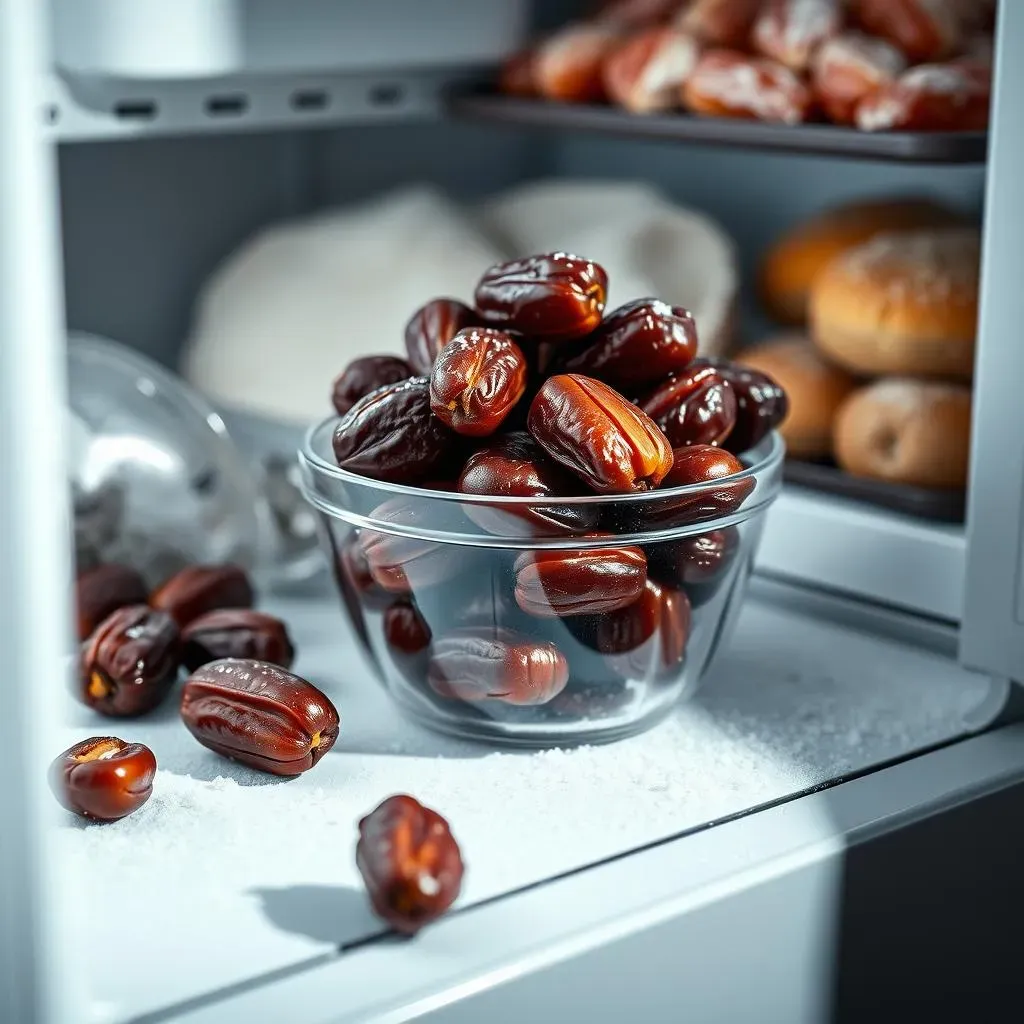
Beyond the Fridge: Can You Freeze Dates?
Thinking Long-Term? The Freezer's Got You Covered
Alright, let's say you stumbled upon an unbelievable deal on dates – like, a truly historic, stock-up-for-the-apocalypse kind of deal. Or maybe you just know you won't get through your current stash for months. Can you freeze dates? Absolutely! Freezing is like putting your dates into a state of suspended animation. It's the ultimate way to extend their lifespan and keep them in tip-top shape for the long haul. Think of it as hitting the ultimate snooze button on the aging process of your dates.
How to Freeze Dates Like a Pro
Freezing dates isn't rocket science, but a few simple steps can make a big difference. First off, make sure your dates are in an airtight container or a freezer bag. Push out as much air as possible to prevent freezer burn – those icy patches that can mess with the texture and flavor. You can freeze them whole or pitted, depending on your preference. Pitting them beforehand means they're ready to go straight from the freezer into your smoothie or baking recipe. It's like prepping your ingredients in advance, future you will definitely thank you.
For an extra layer of protection against sticking, you can flash freeze them. Spread the dates out in a single layer on a baking sheet and pop them in the freezer for about an hour. Once they're frozen solid, you can transfer them to a freezer bag. This prevents them from clumping together in one giant, date-y iceberg. Nobody wants to chip away at a frozen date monolith when a craving strikes.
Thawing and Enjoying Your Frozen Treasures
When you're ready to enjoy your frozen dates, you have a couple of options. If you're using them in baking or a smoothie, you can often toss them in straight from the freezer. The blending or cooking process will take care of the thawing. If you want to eat them as is, let them thaw in the refrigerator for a few hours or at room temperature for a shorter time. They might be slightly softer than fresh dates, but they'll still be delicious. Just maybe avoid refreezing them once they've thawed, as that can mess with their texture. Think of it like a one-way trip out of the freezer for these guys.
Freezing Method | Pros | Cons |
|---|---|---|
Airtight Container/Bag | Simple and effective | Dates may stick together |
Flash Freezing | Prevents sticking, easy to grab individual dates | Requires a bit more effort |
